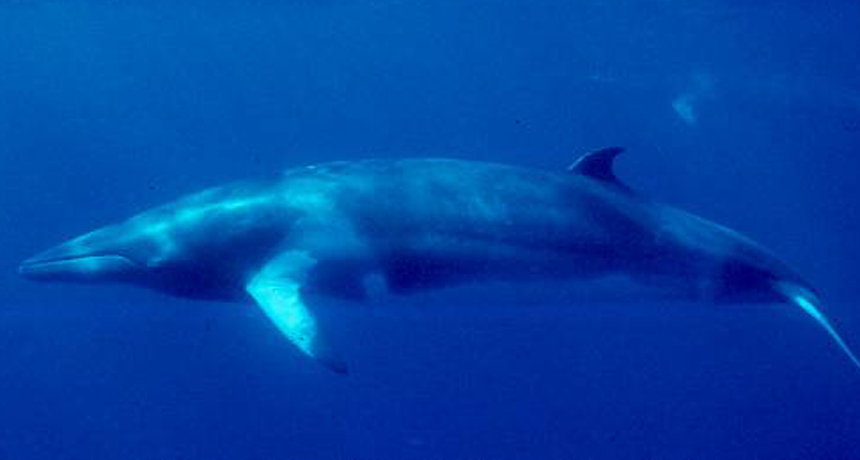
Comparing the genetic material of whales has revealed DNA changes that may have helped the animals adapt to living in water.
Studying the genetic material of a minke whales (one shown) and other marine animals has revealed DNA changes that could have helped the animals adapt to ocean environments.
Whales’ closest living relatives are species of hippopotamuses. The earliest, fully aquatic whalelike animals probably lived around 52 million to 54 million years ago.
To determine what adaptations could have helped the animals become fully aquatic, scientists studied the genomes of three minke whales, a fin whale, a bottlenose dolphin and a finless porpoise. The results show that groups of genes related to the breakdown of molecules produced in low-oxygen environments were expanded in the animals and that the animals have specific genetic mutations that appear to help regulate antioxidants and enzymes controlling blood pressure and levels of salt in their bodies, the researchers report November 24 in Nature Genetics.
Gene groups related to body hair and sensory receptors were constricted in the animals

 Previous page
Previous page Back to top
Back to top







